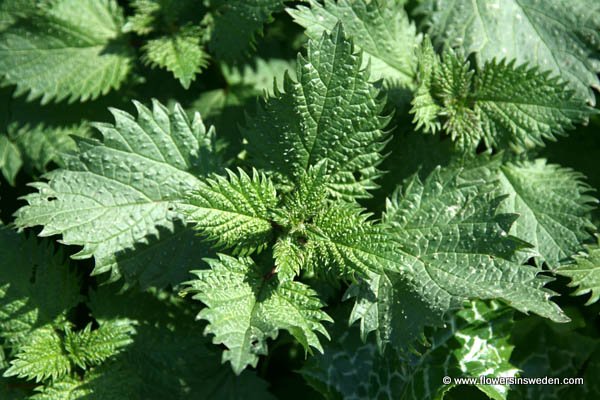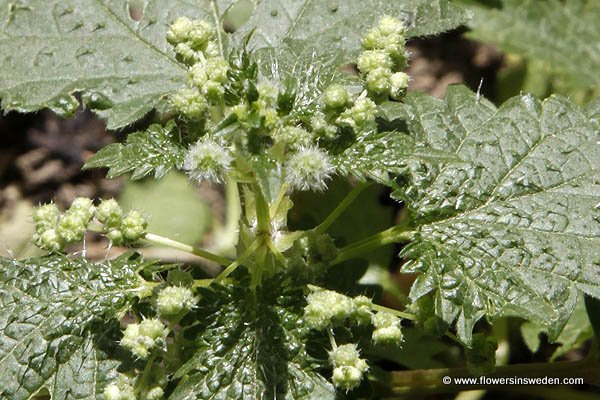
| Scientific name: | Urtica urens L. | |
| Swedish name: | Etternässla | |
| German name: | Kleine Brennnessel, Eiternessel | |
| Nederlandse naam: | Kleine brandnetel | |
| English name: | Small nettle, Dwarf stinger, Dog nettle | |
| Family: | Urticaceae, Nettle family, Nässelväxter |

|
| Life form: | Therophyte, annual | |
| Stems: | Height 10–50 cm, branching stem, stinging hairs (knob-like tip of the hair comes of at contact, and the hollow needle penetrates the skin releasing a burning acid mixture) | |
| Leaves: | Opposite, entire, elliptic to broadly elliptic, dentate or serrate | |
| Flowers: | Green, unisexual, staminate and pistillate in same inflorescence | |
| Flowering Period: | June, July | |
| Fruits: | Oval to pear-shaped, flat, yellowish-brown achene | |
| Habitat: | Throughout the country; in Northern Sweden rare |

Derivation of the botanical name: Urtica, uro, I burn, alluding to the nettle's sting; stinging nettle. Their capability to sting makes them useful for metaphors. In the Bible three different Hebrew names are quoted: Sirpad (סרפד)- in Isaiah 55:13; Seravim (סרבים)- in Ezekiel 2:6; Harul (הרול)-Zephaniah 2:9. They are synonyms, the roots s-r-f and h-a-r both meaning 'scorching' or 'burning'. urens, Latin urere, to burn, and refers to the stonging hairs.
Hitty Pitty without the wall; If you touch Hitty Pitty, Hitty Pitty will bite you. |